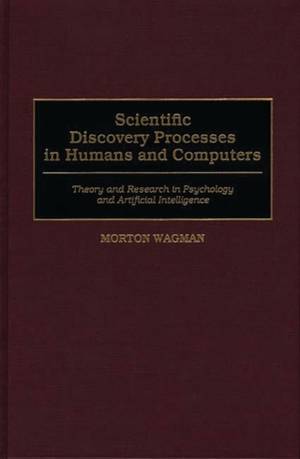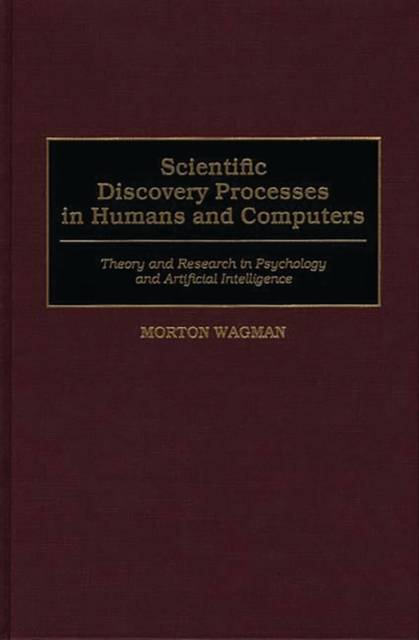
- Afhalen na 1 uur in een winkel met voorraad
- Gratis thuislevering in België vanaf € 30
- Ruim aanbod met 7 miljoen producten
- Afhalen na 1 uur in een winkel met voorraad
- Gratis thuislevering in België vanaf € 30
- Ruim aanbod met 7 miljoen producten
Zoeken
Scientific Discovery Processes in Humans and Computers
Theory and Research in Psychology and Artificial Intelligence
Morton Wagman
Hardcover | Engels
€ 161,45
+ 322 punten
Omschrijving
Wagman offers a critical analysis of current theory and research in the psychological and computational sciences, directed toward the elucidation of scientific discovery processes and structures. It discusses human scientific discovery processes, analyzes computer scientific discovery processes, and makes a comparative evaluation of the two. This work examines the scientific reasoning of the discoverers of the inhibition mechanism of gene control; scientific discovery heuristics used at different developmental levels; artificial intelligence and mathematical discovery; the ECHO system; the evolution of artificial intelligence discovery systems; the PAULI system; and the KEKADA system. It concludes with an examination of the extent to which computational discovery systems can emulate a set of 10 types of scientific problems.
Specificaties
Betrokkenen
- Auteur(s):
- Uitgeverij:
Inhoud
- Aantal bladzijden:
- 216
- Taal:
- Engels
Eigenschappen
- Productcode (EAN):
- 9780275966546
- Verschijningsdatum:
- 30/05/2000
- Uitvoering:
- Hardcover
- Formaat:
- Genaaid
- Afmetingen:
- 163 mm x 244 mm
- Gewicht:
- 526 g

Alleen bij Standaard Boekhandel
+ 322 punten op je klantenkaart van Standaard Boekhandel
Beoordelingen
We publiceren alleen reviews die voldoen aan de voorwaarden voor reviews. Bekijk onze voorwaarden voor reviews.











